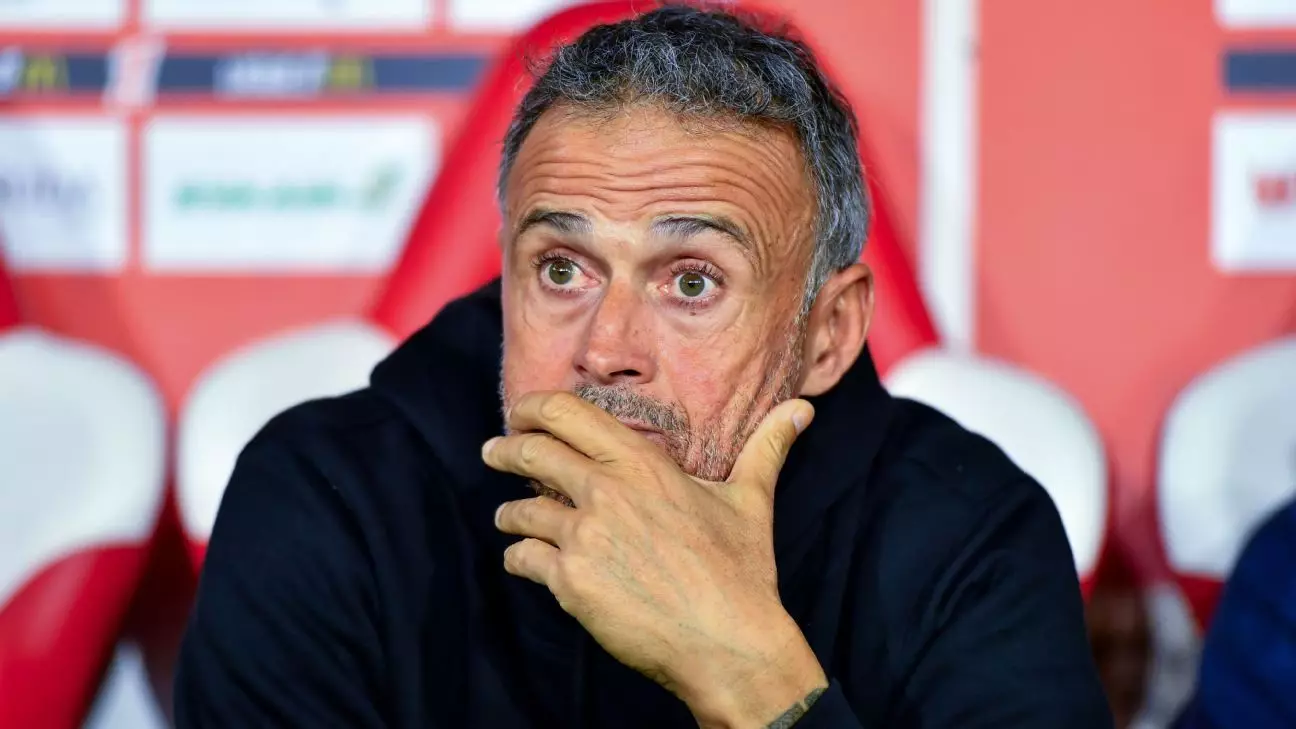Luis Enrique, the manager of Paris Saint-Germain (PSG), has found himself in a peculiar situation where his relationship with the media has become increasingly strained. In recent statements, he expressed a willingness to take a significant reduction in his salary—up to 50%—if it meant he could evade the constant scrutiny and questioning from reporters. This sentiment underscores a broader issue within the world of professional sports, where coaches are often subjected to relentless media pressure, often needing to navigate a minefield of questions that can border on the absurd.
Enrique’s candid remarks were made during a pre-match press conference leading up to the Ligue 1 fixture against Rennes. His light-hearted opening contrasted sharply with the gravity of his underlying frustration; he spoke fondly of engaging with journalists but also indicated that at times, especially during post-match conferences, the barrage of questions becomes overwhelming. His willingness to sacrifice a portion of his earnings highlights the extreme pressure coaches can feel, questioning whether the notoriety and financial rewards of high-profile coaching roles are worth the mental toll of media obligations.
A significant source of this frustration seems to stem from the repetitive focus on Kylian Mbappé, the star player who recently left PSG to join Real Madrid following a protracted contract dispute. During a press conference, when a reporter prodded Enrique about Mbappé’s transition to Madrid, the tension in the room was palpable. His reaction—a vigorous head shake and a sarcastic retort—exemplified his annoyance at the persistence of questions centered around a player who is no longer part of his squad. This moment captures not only the emotional stakes for Enrique but also the often-exhausting cycle of media narratives that can overshadow a coach’s current responsibilities.
Enrique’s repeated insistence that he desires to focus on his team rather than rehash the story of Mbappé sheds light on a common issue in sports journalism: the penchant to cling to previous narratives at the expense of current developments. His transparent frustration should serve as a reminder of the nuanced dynamics between coaching staff and the media and the toll it can take on their mental and emotional well-being.
Despite these challenges, it is essential to recognize that engaging with the media is part of the job description for coaches at elite clubs. Contracts often stipulate mandatory press appearances, emphasizing that communication and relationship-building—with both press and fanbase—are pivotal aspects of their roles. Enriques’s statements reveal a paradox: while he enjoys talking to journalists and appreciates the camaraderie that can develop, the repetitiveness of certain topics causes weariness.
The spotlight on Enrique not only illustrates the pressures faced by coaches but also invites broader conversation around the responsibilities of sports journalists to offer fresh narratives. As the landscape of sports media evolves, perhaps a more balanced approach could lead to less frustration for coaches and better stories for the public—an outcome that would ultimately benefit all parties involved.
